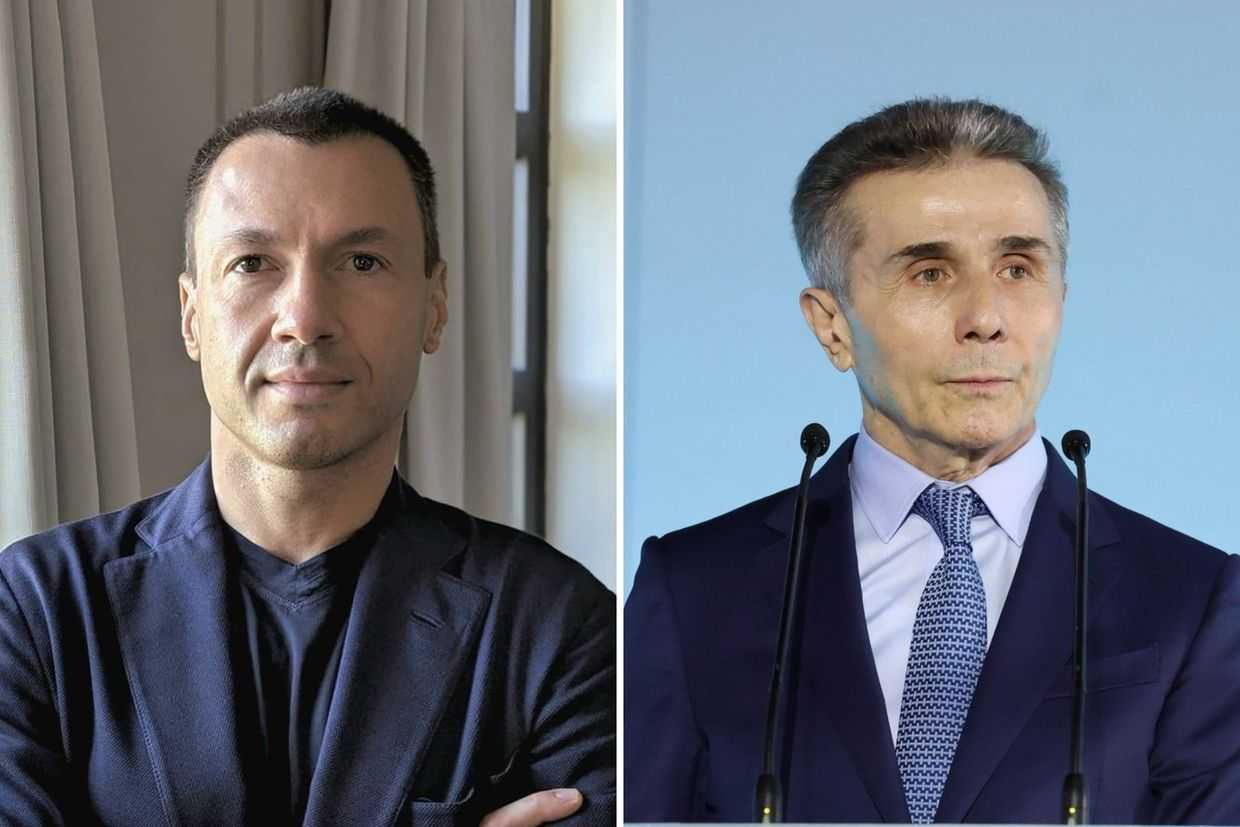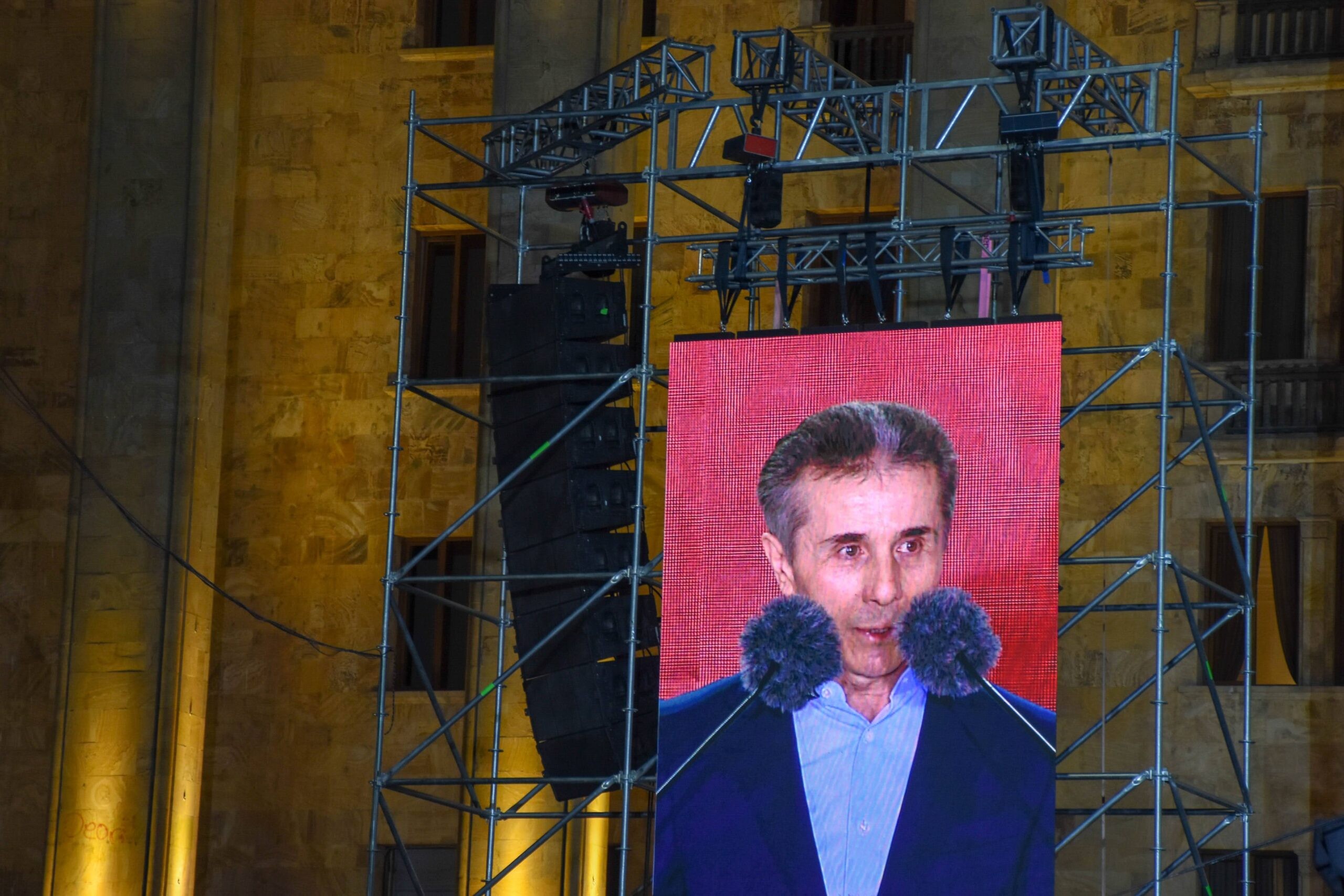
The billionaire founder of Georgia’s ruling Georgian Dream party — Bidzina Ivanishvili — has given a conspiracy-fueled address at a massive pro-government rally in Tbilisi.
In a speech in front of tens of thousands of people outside parliament on Monday evening, Ivanishvili suggested that Western countries were being controlled by a secret global conspiracy that the Georgian Government was successfully resisting. He decried what he called the ‘global party of war’ — which he said was responsible for the 2008 August war and Russia’s invasion of Ukraine — as well as suggesting a ‘foreign agency’ appointed Georgia’s rulers between 2004–2012.
The demonstration, named the ‘People’s Universal Assembly — Homeland, Language, Faith!’ saw thousands of people bussed into the capital by the ruling party, with widespread reports that civil servants and other government employees were forced to attend en masse.

It came in response to large anti-government protests that have rocked Tbilisi for weeks, sparked by Georgian Dream’s reintroduction of the draft foreign agent law.
The legislation, similar to a law used to crush independent journalism and civil society in Russia, has been widely condemned by Georgia’s Western allies, with European officials suggesting its passage could preclude Georgia from progressing in its membership application.
Despite this, Ivanishvili promised during his speech that Georgia would be an EU member by 2030 ‘with sovereignty and dignity intact’.
During Monday’s pro-government address, Ivanishvili and other officials, including Prime Minister Irakli Kobakhidze, Speaker of Parliament Shalva Papuashvili, Tbilisi Mayor Kakha Kaladze, and the party’s parliamentary leader, Mamuka Mdinaradze, made frequent thinly veiled criticisms of the West.
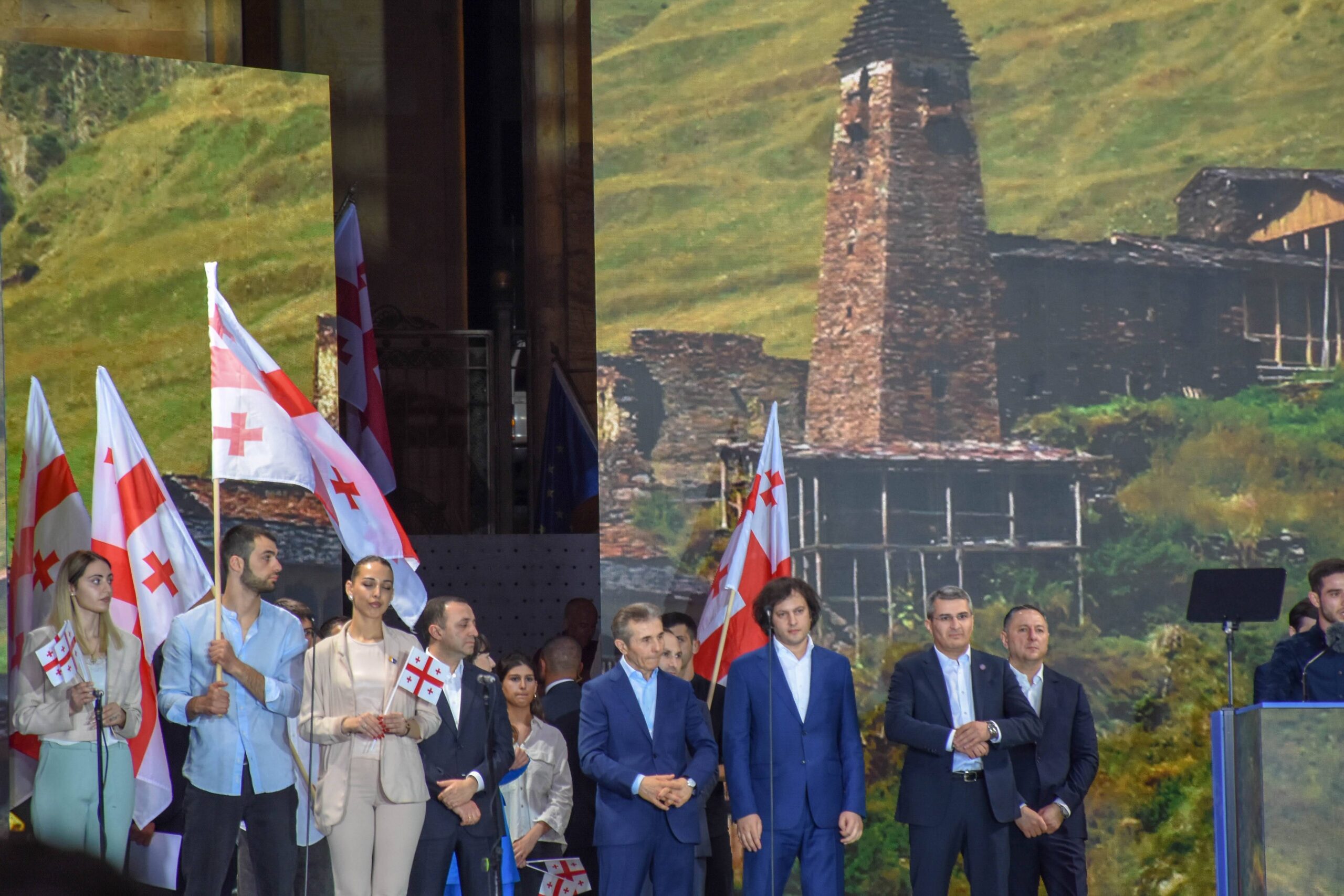
‘Despite the promise of the Bucharest [NATO] summit in 2008, Georgia and Ukraine have not joined NATO’, Ivanishvili said. ‘All such decisions are made by the Global War Party, which has a decisive influence on NATO and the European Union, and for which both Georgia and Ukraine have paid a terrible price.’
Ivanishvili claimed an unnamed ‘foreign agency’ had controlled Georgia from 2004–2012, during the United National Movenment (UNM)’s time in power.
‘In 2004–2012, we went through the most difficult years, when the country was ruled not by a government elected by the people, but by a revolutionary committee appointed from outside, by a foreign agency’, he said.
He added that after October’s parliamentary elections, the reelected government would ‘be able to deliver a strict political and legal verdict to the collective National Movement’. Georgian Dream have applied this label to nearly all of its critics in the past few years, from opposition lawmakers and political groups to major democracy watchdog organisations.
‘When we ended the UNM’s bloody regime, I thought my mission was done. But it was not enough; we must still fight for our independence and sovereignty. I personally continue that struggle to fully restore our nation’s sovereignty’, he said.
There were also frequent attacks on civil society. Ivanishvili claimed that the 2003 Rose Revolution, which brought the UNM to power, was ‘arranged by NGOs’.
In addition to the draft foreign agent law, Ivanishvili also hailed recent draft constitutional changes against queer ‘propaganda’.
‘The initiation of [draft] laws on LGBT propaganda and NGOs has had a double benefit: on the one hand, there is no alternative to legislating these two issues, and on the other hand, the premature expenditure of accumulated energy will completely drain the power of an already weakened [foreign] agency’, he said.
He said the timing of the legislation was ‘ideally chosen’.
‘With these processes, the country and the government will not lose anything, except that we will once again upset the global war party, which has no lack of resentment towards us for not opening the second front [of war with Russia]’, he said.
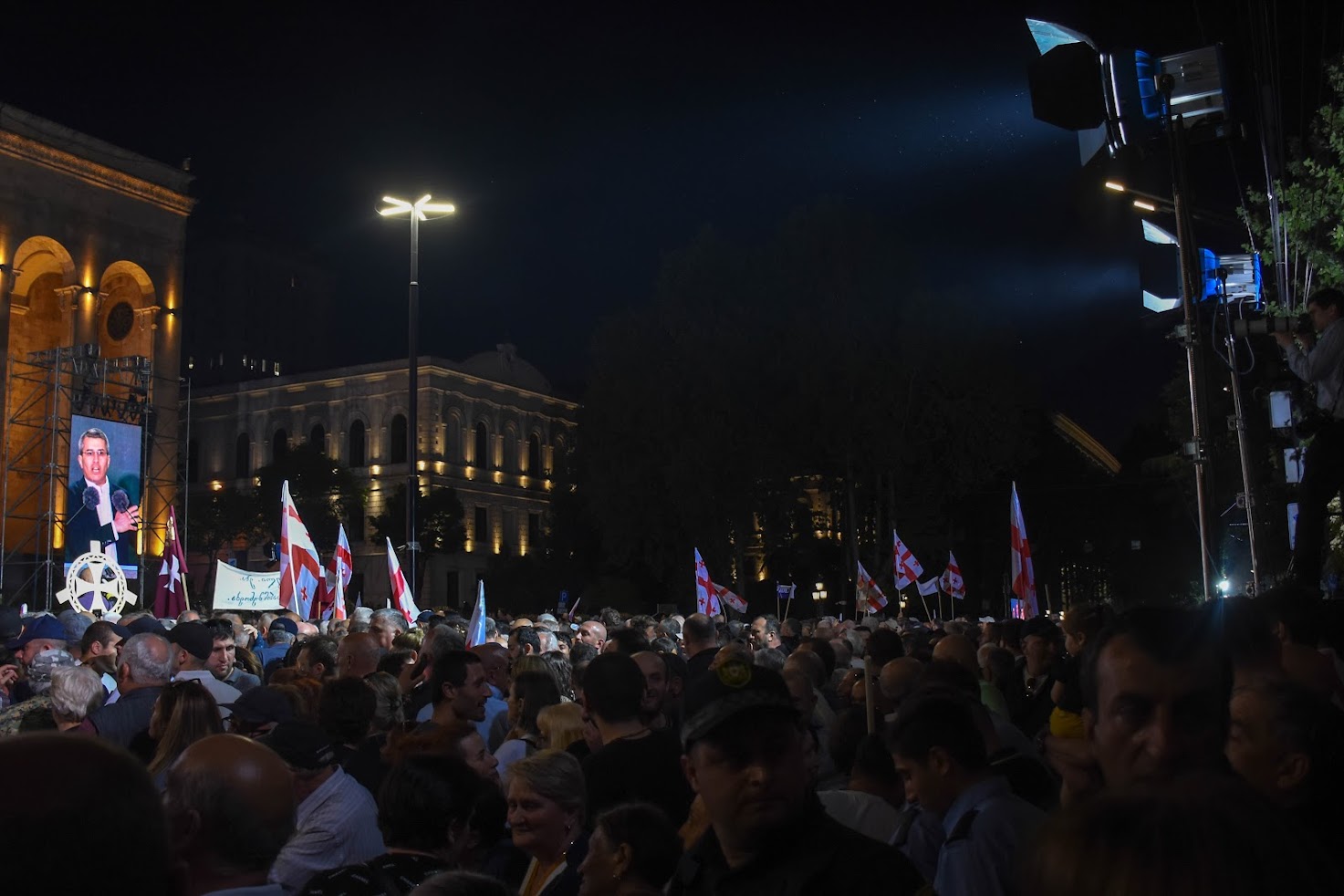
Other senior officials appeared to attack the EU while also demanding that the country’s membership application proceed quickly, insisting that Georgia would strengthen the EU.
PM Irakli Kobakhidze called on the EU to ‘unlike in June 2022 [when Georgia was denied EU candidate status], show due respect to Georgian society, restore justice, and open negotiations this year’.
‘This is the demand of Georgian society, which Georgian society and the Georgian state deserve’, he said.
Responding to Ivanishvili’s speech on Monday evening, several opposition leaders pointed out that he had now clarified that when Georgian Dream spoke about the ‘global party of war’, whose supposed existence they have railed against since Russia’s fullscale invasion of Ukraine, they were referring to the EU.
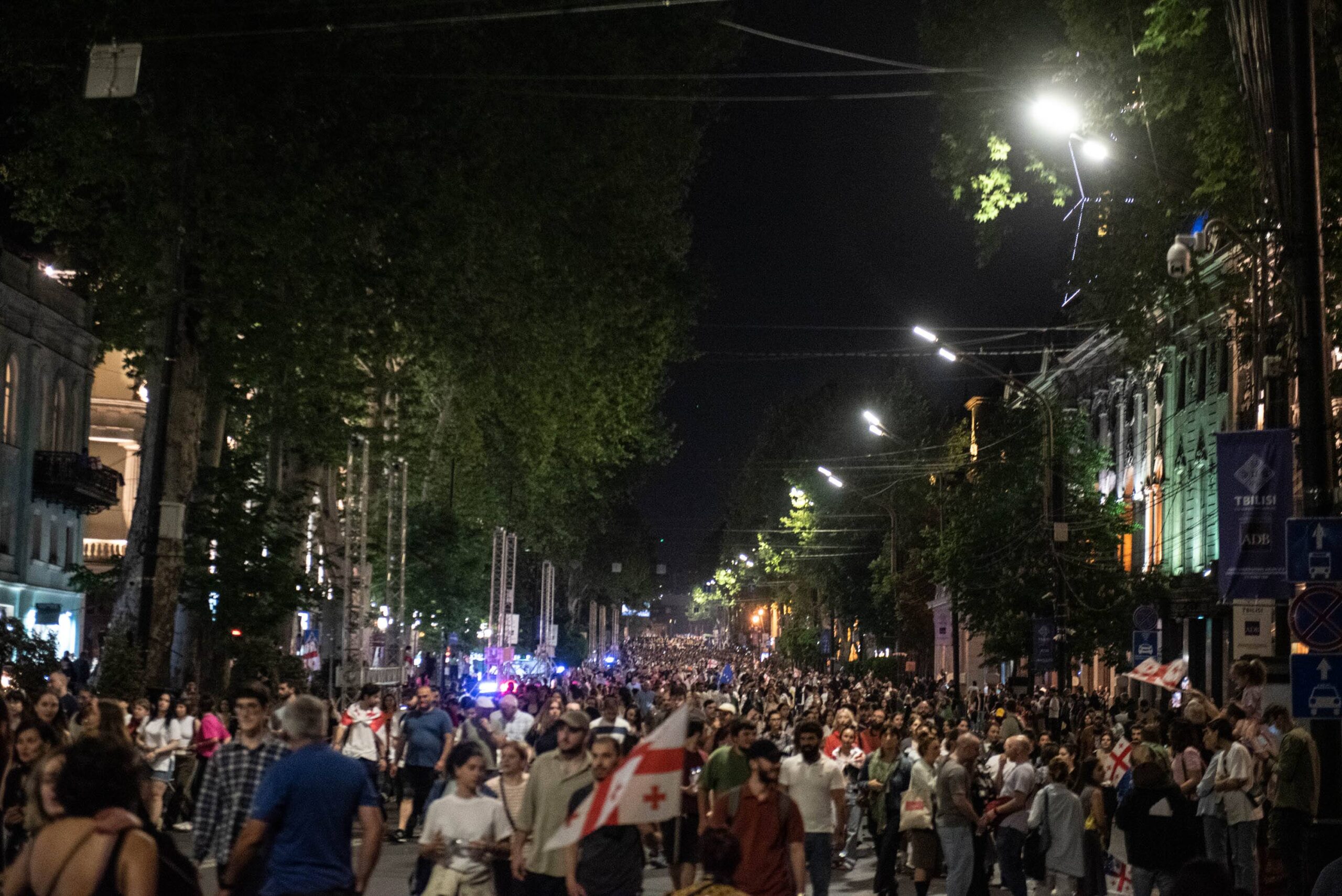
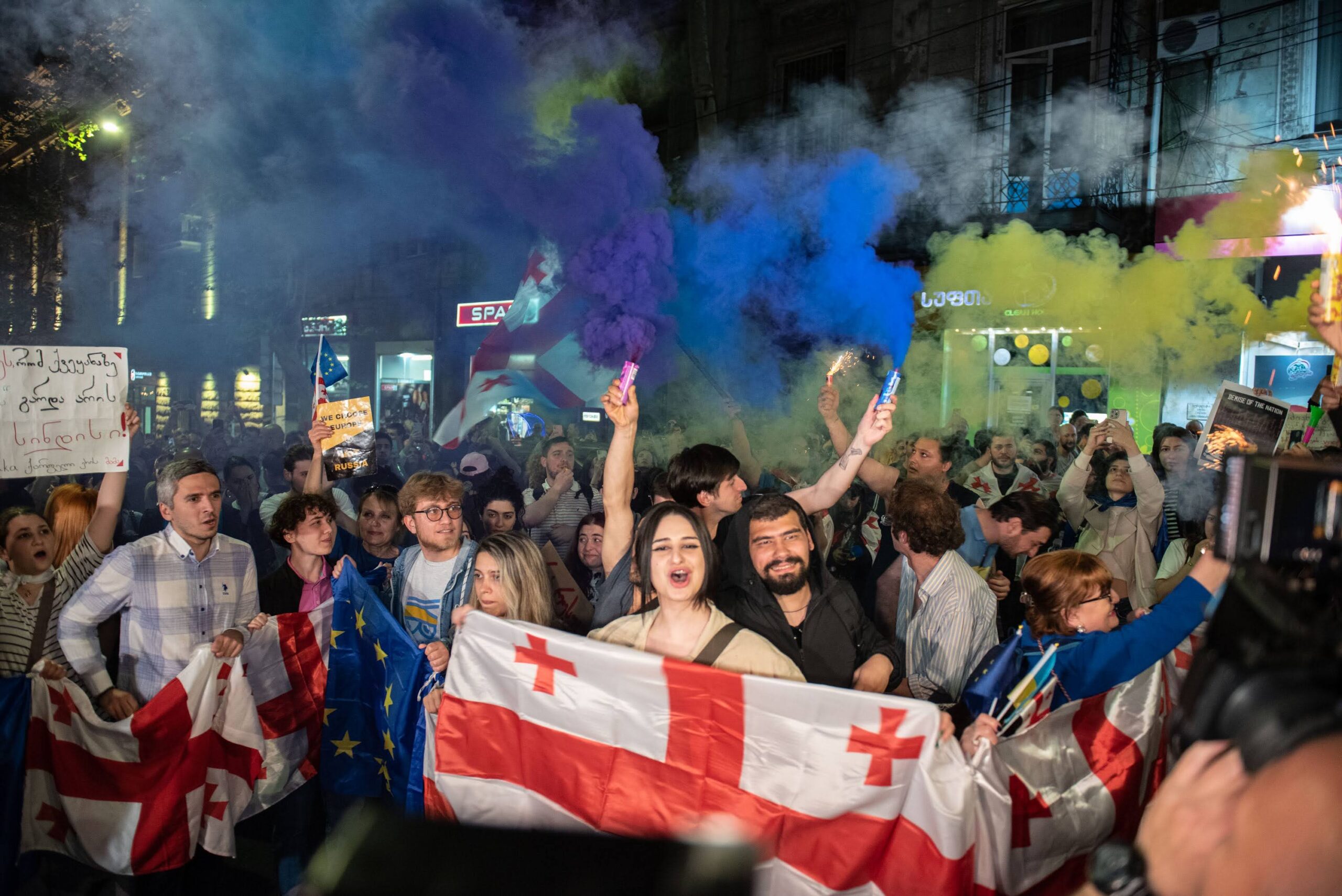
Before the demonstration began, parliament’s Legal Affairs Committee passed the foreign agent bill in its second hearing. As in previous hearings, opposition MPs were ejected by committee chair Anri Okhanashvili for labelling the bill the ‘Russian Law’ or asking critical questions, with other opposition MPs walking out in protest.
Thirteen local democracy watchdogs stated the hearing was held ‘under censorship’.
Journalists from online media outlets, including OC Media, were again barred from covering the committee discussions. Speaker of the Parliament Shalva Papuashvili’s office has banned online media from attending all stages of the bill’s discussions.
The bill is expected to begin its second plenary hearing on Tuesday, with the third and final reading expected in the week of 13–17 May.
Protests against the legislation are also expected to continue, with opposition parties — previously less active during the demonstrations — vowing to prevent the second reading from passing.
Georgia’s foreign agent law would label any civil society or media organisation that received at least 20% of its funding from outside Georgia ‘organisations carrying out the interests of a foreign power’. Such organisations would be subject to ‘monitoring’ by the Ministry of Justice every six months, which lawyers have warned could include forcing them to hand over internal communications and confidential sources. Organisations that do not comply would be subject to large fines.




